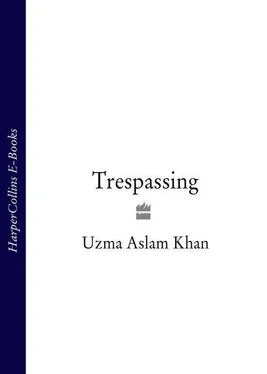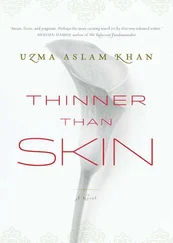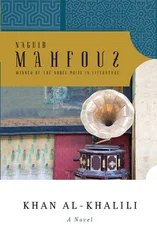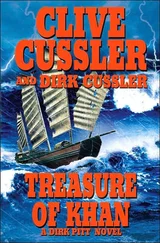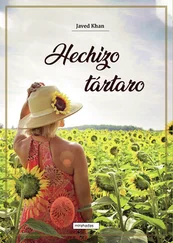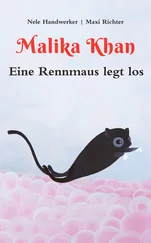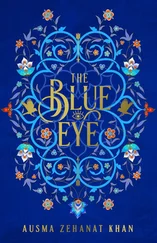1 ...8 9 10 12 13 14 ...81 Anu examined the spiraling beauty. It shimmered on the cream-colored cushion in the box, alive even in death. Underneath was the note, written in the smart, controlled handwriting of Daanish the thirteen-year-old: December ‘83, on Aba’s return from the Pacific. Called chambered nautilus because it has many rooms inside. Aba says its brain is very developed, it has three hearts, and its blood is blue. He knows because he’s a doctor. It’s 180 million years old, as old as a dinosaur. What a find!
Also on the cushion was a close relative of the nautilus, an argonaut. Anu clearly remembered the day Daanish had found it at the cove.
She tucked the slip of paper back into the box and put it on top of the pile in her arms. From downstairs, the doctor called. He was dying, and there were things he wanted to get off his chest first. She’d heard enough already. Once, perhaps, she would have heard it all. But gone were the days when she would have worn his confessions like a string around her neck. She put the heap of boxes down on the floor. Then she lay on the new bed and spread the guipure lace around her, remembering the cove.
It was shaped like the round neck of a kameez, some forty feet across. The right shoulder was a cluster of enormous rocks, the first of which Daanish called the shoulder-boulder. When he and his father swam, Anu hoisted herself upon it. Around her spilled yarns of the guipure lace she turned into tablecloths, curtains, and more.
She began the bedcover on a chilly early morning in November as Daanish waded into the sea, shivering. The water was cold and composed. She’d tested it while they cleaned their snorkels. An aquamarine shawl enveloped her shoulders. She’d worn her hair long in those days, and left it loose, though it would take hours to disentangle later. The doctor liked it that way. He’d drape it over her shoulder, then gaze at her profile from the water. He preferred her left side, the one that wore the ruby nose-pin he’d given, not given but hidden, at the bottom of a perfume bottle. When it was noticed, she’d not known what to do: empty the bottle and risk splashing drops of the expensive scent, or wait till it had finished? She ended up pouring Chanel into a jar, retrieving the ruby, then pouring it back, spilling his money all over her dressing table and sneezing uncontrollably.
The shoulder-boulder was naturally pitted to seat her. The doctor hollered for her to come in with him, but she flatly refused to wear a bathing suit. He taunted her modesty because he knew she’d never give it up. If she were the changing type, he would not have married her.
The bedcover in her lap was taking a surprising turn. Patterns unplanned emerged and she obliged by seeing them through. When Daanish kicked around the boulder, heading for the deeper sea, he waved. She waved back. What would he see? For a moment, it pained that she’d never know. But this was nothing new. Her husband often left for voyages to the bigger ocean, where she’d seen islands peppering the globe in his study, and young girls dressed in flowers peppering his photos. He was always irritable upon his return. Once she asked Daanish to ask him why. The son reported cheerfully, ‘He says I’ll understand when I grow up, something about falling into the trap of comparison.’ But she always felt his frustration had something to do with the photos.
One day, he’d send her son to one of those dots on the globe. She prayed for him to return untransformed. Like her, he should not be the changing type.
The sun caught in the heavy lace like anchovy. This year the monsoons had poured into autumn. A river, normally dry by now, still ran along the east end of the beach. Plovers, herons, and even a pair of mighty spoonbills bathed in the waters. The birds she could see. The fish beneath the surface she could not. A mischievous desire suddenly overtook her: before the doctor returned, she wanted the spoonbills to fly away. She knew he’d never seen them before. She could impress him for having noticed and identified them. But she alone would have been the witness. Anu covered her mouth, slyly giggling.
After half an hour, she folded up the lace, tucked it under an arm, and hopped down onto the powdery sand. There was no one about. For the time being, this cupular cove and everything it held — the river, cave, rocks, powdery sand, and pristine isolation — were all hers.
She padded toward the left shoulder of the cove, where a line of jagged rocks gradually grew taller, and sheerer. At the base of the incline the sea and wind had etched a cave that could be entered at low tide. The doctor liked to have his tea there. Turning up her shalwar till it pressed her calves — she’d never have rolled that high for him — Anu minced across the slippery stone toward the cave’s mouth. The sea cooled her ankles. If she tripped and fell into the gravelly seabed, though it would hurt, later that night she’d notice her soles had been scrubbed pink. Now, seaweed caught in the hem of her shalwar. Lemon-colored fish scrambled between her legs, like she was their marker. What did her son and husband see? It must be something like this. Then why didn’t they just stay here?
She ducked into the cave, twelve feet deep, its height very slightly less than hers. She could feel the cold stone press down on her head like the foot of a giant. The light inside was eel-gray. When the sea lapped the cave’s sides the giant above her bellowed.
At the far end, the doctor had arranged slabs of flat rock. On one she began arranging pakoras and quartering fruit. In her estimate, they’d arrive within five minutes. Waiting, she spread the guipure bedcover around her again, carefully avoiding the wet floor. Whatever she’d lost in childbearing floriferousness when her ovaries were removed, she made up in that luscious fabric for her son. It rippled around her like a second sea. As before, the design came unexpectedly. Only she could see beneath it. Let them use snorkels and masks; she had eyes.
At precisely the time anticipated, Daanish’s voice was heard. Her cheeks glowed with the warmth reserved for him. But then she heard his father’s booming laugh. For a fleeting second, her brow furrowed. This was her time, her place. Then, just as rapidly, her irritation drained away. The world was normal again. Her family was safe. They were hungry. She was their marker. It was time to be theirs.
Over tea, Daanish examined the bedcover. He insisted the figures were sea urchins, fan coral, jellyfish, and sea snakes. Names his father had taught him. Names his father would never share with her. ‘Just like you’d been there too, Anu,’ Daanish said. He was so innocent. But there was a new light in his eye. Something forming. A dream or ambition. When it blossomed, he would lose his innocence, and she would lose him.
The doctor asked where her shawl was. She looked about in distress. He laughed, saying it had blown off just as they rounded the boulder, and from the water he’d seen the sun filter straight through her kurta, so she might as well have worn a two-piece and jumped into the sea to get good and wet.
‘Please,’ she tsked, ‘not in front of him.’ Daanish was digging for shells at the cave’s entrance, listening. Smirking, almost. Growing older by the minute.
The doctor held the lace up to her face and grinned, ‘You might as well have worn this.’
Again she yearned, like a shooting pain, to be alone in her world with her dreams.
And again, when it passed, normalcy.
Fourteen years had gone by. Downstairs, the doctor writhed in bed. He was still calling. Once she would have gone to him, believing it would lead him back to her — to the way he’d been when Daanish was born. She would have sat quietly beside him, listened, and consoled. It would have been part of the patient waiting. But she had stopped waiting. She had realized that to wait is to watch yourself grow old. Her future rested not with her husband but with her son.
Читать дальше
Конец ознакомительного отрывка
Купить книгу
